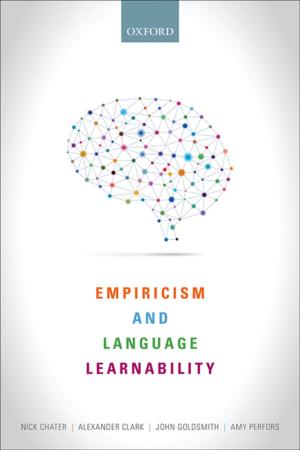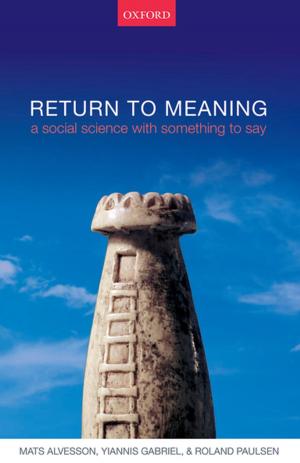Research for the Developing World
Public Funding from Australia, Canada, and the UK
Business & Finance, Economics, Public Finance, Economic Development| Author: | Bruce Currie-Alder | ISBN: | 9780191060649 |
| Publisher: | OUP Oxford | Publication: | October 8, 2015 |
| Imprint: | OUP Oxford | Language: | English |
| Author: | Bruce Currie-Alder |
| ISBN: | 9780191060649 |
| Publisher: | OUP Oxford |
| Publication: | October 8, 2015 |
| Imprint: | OUP Oxford |
| Language: | English |
Research for the developing world can generate evidence on the effectiveness of foreign aid, invent new technologies that serve poor people, and strengthen research capabilities in poor countries. How do countries determine which of these policy goals to pursue? Examining the United Kingdom, Canada, and Australia reveals how each country established a unique approach to research funding. Programs and grantmaking evolved in response to various expectations across government, tempered by the need to remain credible in the scientific community. This book explores the histories of the UK Department for International Development (DFID), Canada's International Development Research Centre (IDRC), and the Australian Centre for International Agricultural Research (ACIAR). Looking back, changes in research governance encouraged a shift towards whole-of-government priorities, shorter timeframes for realizing results, and performance predicated on academic productivity and research impact. Whereas funders used to encourage 'small is beautiful' with local experiments in development, today the emphasis is on 'getting to scale' delivering innovation through self-financing models. Looking forward, research for the developing world is fading as part of development assistance, yet rising as collaboration on common global challenges. Funders are adopting new definitions of performance and actively shaping policy to connect science and international development. Leaders are brokering partnerships that connect research governance at home and abroad, bridging the incentives towards academic productivity and research impact. In short, the future of research for the developing world is moving from foreign aid to science diplomacy.
Research for the developing world can generate evidence on the effectiveness of foreign aid, invent new technologies that serve poor people, and strengthen research capabilities in poor countries. How do countries determine which of these policy goals to pursue? Examining the United Kingdom, Canada, and Australia reveals how each country established a unique approach to research funding. Programs and grantmaking evolved in response to various expectations across government, tempered by the need to remain credible in the scientific community. This book explores the histories of the UK Department for International Development (DFID), Canada's International Development Research Centre (IDRC), and the Australian Centre for International Agricultural Research (ACIAR). Looking back, changes in research governance encouraged a shift towards whole-of-government priorities, shorter timeframes for realizing results, and performance predicated on academic productivity and research impact. Whereas funders used to encourage 'small is beautiful' with local experiments in development, today the emphasis is on 'getting to scale' delivering innovation through self-financing models. Looking forward, research for the developing world is fading as part of development assistance, yet rising as collaboration on common global challenges. Funders are adopting new definitions of performance and actively shaping policy to connect science and international development. Leaders are brokering partnerships that connect research governance at home and abroad, bridging the incentives towards academic productivity and research impact. In short, the future of research for the developing world is moving from foreign aid to science diplomacy.















